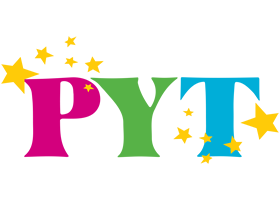Frequently Asked Questions
How do auditions work?
Actors will arrive at PYT studios 15-30 minutes prior to their scheduled audition time. They will check in with their paperwork complete, be given a number, and measured for their costume(s). For most auditions, actors are taken into the audition room in groups of ten. The group will go into our studio and first take turns performing their monologue and song to the casting team. They then will learn a short dance routine with the Choreographer. Plan on spending 1 – 1.5 hours at the studio for your audition. This can go longer if we start running behind – check with the producers when you arrive to get an accurate sense of when you will be finished for the day.
How important is the conflict calendar?
It is critical to the success of the production that we know when performers are available for rehearsal. The conflict calendar should be filled out completely prior to auditions. Be sure to consider school, family, work, travel and religious obligations. Please note: NO CONFLICTS ARE ALLOWED DURING TECH REHEARSALS AND PERFORMANCES. Remember also that you will not be called to every rehearsal. PYT makes a concerted effort to only call performers when they will be needed.
What is PYT’s conflict policy?
- We reserve the right to not cast anyone who has more than the maximum allowable conflicts set for the production, as well as the right to cut anyone from the show who has unexcused absences, or anyone who adds conflicts to tech week or performances.
- Generally, the maximum number of conflicts and actor can have and still be guaranteed casting is equal to 1 per week of rehearsal (not including tech). Please verify each production’s audition details for more specific information.
- Directors shall cast all actors with up to the maximum allowed conflicts, unless the actor’s casting restrictions cannot be met or the production has a limited amount of roles.
- Any threshold applied to one actor in the restriction of casting due to conflicts must be applied to all actors of the given production. For example, if an actor is not cast due to excessive conflicts, no other actor may be cast with the same number of conflicts or more.
- Actors can list partial conflicts. These conflicts may be weighted differently than full conflicts for casting purposes.
- Unexcused absences will be handled at the discretion of creative staff in consultation with producing artistic director. No matter the reason for the absence, unexcused absences may require an actor be cut from scenes, songs, or the show as a whole depending upon the number of absences, the role, and the needs of the production.
- Actors should not come to rehearsal if they have a fever, are vomiting, have head lice, or any other condition that would be considered reasonable to hold the actor out of school. More than 3 missed rehearsals due to illness, however, may require follow up meeting with staff and could lead to removal from scenes, songs, or the show as a whole depending upon the number of absences, the role, and the needs of the production.
- Any unexcused absence, emergency, or illness must be accompanied with a written notice from the actor’s parent or guardian to the Producers explaining the absence.
PYT cannot plan rehearsals without an accurate understanding of who is available at any given rehearsal. We see your conflict calendar as a commitment to attend any rehearsal for which you are called that doesn’t have a conflict.
How do I know if I will have a callback?
At the end of your audition, you will be given a sheet that will tell you if you need to come to callbacks, and when. Not everyone will be called back, and there are no make-up callback times if you have a conflict during callbacks.
What is a callback, and what does it mean if I don’t get one?
Callbacks are the directors way of gathering more information from a given actor, or seeing how they interact with other performers. Having a callback is not a guarantee of a role, and not receiving one doesn’t mean you won’t be cast in a great role. It means the directors gathered enough information during your initial audition to cast you without seeing you again. Callback time is limited so directors may call you back for one role and use your callback as a way to evaluate you for a variety of roles.
Who is in the room during auditions and callbacks?
PYT holds group-based auditions. Other actors auditioning, along with the director, the choreographer, the music or vocal director, and a person to time auditions and track callback materials can be in the room.
Are the producers in the room during auditions and callbacks?
Not usually. They may bring paperwork into the room before the auditions begin or go in and pick up the callback forms after each group has completed their auditions and has left the room. Sometimes a producer will function as the timer, but only if they do not have a child auditioning for the show.
How does casting work?
While talent does carry a significant weight in casting, there are other considerations. Casting is something like putting a big jigsaw puzzle together except you won’t know what it actually looks like for another 6-8 weeks. Sometimes, there are things that influence casting that are completely outside of the actor’s control – things like height and who else is auditioning can affect casting. With youth theater, we have added the complications of carpools, schedule conflicts and casting youth in adult age ranges. Finally, the directors’ past experiences with actors can become a factor, both negatively and positively. If a director knows a certain actor is regularly chatty during rehearsal, they may choose to cast someone with better focus in a major role. Likewise, if a director knows an actor is delightful to work with, focused and hardworking, that too could be the tipping point in a casting decision.
Do you have to have previous experience at PYT to get a lead?
No. Directors routinely cast first time PYT actors in major roles. What matters most is that you come in well prepared with good audition material and great acting choices. While past positive experience may weigh into a final casting decision, the director’s main objective is to cast the best person for the role regardless of whether or not they’ve done a PYT production before.
Who makes the casting decisions?
The director, music or vocal director, and the choreographer. These three staff members work together as a collaborative team. If any have a conflict of interest within the casting process (e.g. private students or children of the artistic staff), then another impartial PYT staff member may be appointed to support casting decisions. The team begins to discuss and evaluate the audition participants as soon as each group of ten participants completes the audition process. This has to be done in order to initiate the callback process. These staff members continue to email and talk with to one another during the entire casting process.
Who is responsible for making the final decision?
The director will make the final decision, especially if the three staff members cannot agree on a casting choice. In extremely rare cases, PYT’s Executive Director or Director of Business Operations may overturn a casting decision if it is not in line with PYT’s mission and values.
How are final casting decisions made?
Final casting decisions are made based on the Director’s vision of the show and the characters, the recommendations of the Music or Vocal Director and Choreographer, carpool requests, and scheduled conflicts. While the Director has a certain vision of the show, casting may also be influenced by the specific actors that auditioned, and the requirements of certain roles (such as a singing role with a particularly high vocal range). Because we double cast shows, the director is also trying to assemble two equally balanced casts in terms of age and experience.
When is the casting meeting held and who attends this meeting?
The casting meeting is held after the last night of callbacks. The entire casting team and a casting liaison attend this meeting.
Who is the casting liaison and what do they do at the casting meeting?
The casting liaison is a PYT board member or long time volunteer who knows PYT’s casting policies but does not have a child participating in the show. Their job is to make sure that PYT’s casting policies are followed. They also keep track of carpool requests, siblings, cast requests, and the amount of conflicts for each participant. The casting liaison will also sometimes make phone calls pertaining to conflict questions or role requests.
What are PYT’s Casting Policies?
- All actors are cast unless they exceed the maximum number of conflicts allowed, are unable to commit to all the tech rehearsals and performances of at least one cast, or present casting requirements that cannot be met.
- Unless advertised as a limited cast production, there will be two casts, and all roles will be double cast unless a suitable double is unavailable based on the talent pool.
- Every effort will be made to feature each performer in some way and maximize their stage time.
- Any conflicts of interest are disclosed prior to casting (including private students and children of the artistic staff)
- All actors will be cast within the ages published with the audition notice unless approved in advance of casting by the Executive Director, and then only if there are no suitable choices
Why is the cast list usually posted two days after the casting meeting?
This period gives the casting team time to check the cast list for errors and omissions. This is particularly helpful when casting a large cast.
Do the producers or board members participate in any casting decisions?
No, they do not. The director, choreographer, and music/vocal director make all casting decisions as a group.
What is the director looking for in an ideal actor?
Certainly directors are looking for talent, but that is only part of it. They are hoping to get a sense of who the actor is as a person and as a performer. This is part of the reason that actors introduce themselves and their audition piece. It gives the artistic staff a brief moment to see the person before he/she begins acting as someone else. They are also looking to see how well prepared the actor is. (Do they truly know their monologue/song? Do they know what the character wants/needs?). They make note of those who are engaged, make strong choices, and follow directions well. Being a pleasure to work with informs casting choices heavily.
The ideal actor:
- Is well prepared, with an appropriate monologue from a published source,
- Shows an understanding of the role and a commitment to the requirements of the role,
- Has a well-prepared, appropriate song in the correct key, with recorded instrumental music,
- Has a good attitude, accepts responsibility, and does not make excuses,
- Demonstrates maturity and the ability to stay focused and “on track” in spite of mistakes or other distractions,
- Gives 100% performance energy all of the time,
- Is willing to accept any role,
- Has few or no conflicts,
- Dresses appropriately for the audition, including movement clothes and shoes for the dance audition.
Things that can influence casting include:
- Training and experience
- Motivation and energy
- Attitude
- Being well prepared
- Choice of monologue and/or song
- Vocal range and singing ability
- Previous work with the Director, Music Director or Choreographer
- Matching the director’s vision of the role
- Excessive conflicts
- Only accepting specific roles
What if I only want to participate if I get a specific role?
We strongly advise that you go into auditions with a positive attitude and an understanding that a show is only as good as its cast. Every member of the cast has a critical part to play in the success of the show. Often, participating in the ensemble or chorus or taking a minor role provides great opportunities for character development. In some ways, being a good ensemble member can be more challenging than being a lead where singing/dancing are concerned — the harmonies are often harder, and diction and cut-offs need to be clean and it takes great talent and skill to make sure that dance moves are polished — arms at the same angle, kicks at the same height, etc. The best performers have spent time in the ensemble and take every opportunity to work on their theater skills – and it’s a lot of fun!
That said, if you feel that you will only accept particular parts you must say specifically on your audition sheet which parts you will accept by name. Do not put “principal role” or “speaking part” unless you are really willing to take any role that we consider a principal role or speaking part. If you say that you will only accept a particular part and do not get cast in that part, your name will not appear on the cast list and you will receive a pro-rated refund (see refund policy).
What is PYT’s refund policy?
If you cancel an audition appointment 24 hours or more before your scheduled audition, you will receive a pro-rated refund of the registration fee less $10 to cover the costs charged by the credit card company and the online registration system. To cancel an audition, contact PYT in writing at auditions@pytnet.org. Should you not attend your pre-scheduled audition, and make no arrangement to cancel or schedule a make-up audition, you will receive a pro-rated refund less $20.
Should you decide not to participate for any reason AFTER auditions, you must inform the production team in writing NO LATER THAN THE END OF CALLBACKS in order to receive a pro-rated refund. PYT will retain $50 of the registration fee toward expenses associated with the audition process. The rest of the registration fee will be refunded. You can drop off a letter to our offices (Attn: Connor Day) or you can email the written notice to auditions@pytnet.org.
Participants not cast due to excessive conflicts or a casting request that cannot be accommodated will be refunded the same amount as those who drop before the deadline (registration fee less $50 to cover the audition costs). Participants willing to accept any role and do not exceed the maximum number of conflicts but are not cast will receive a full refund.
As all shows offer limited opportunities to participate and there is an extensive amount of work that must be done to recast a part once casting decisions have been made, no refunds are offered for those who drop after the cast list is posted.
How do carpool and cast requests work?
PYT does not arrange carpools. The carpool request line on the audition form is for families who know each other in advance of casting and wish to carpool together. We try to place participants who make carpool requests in the same cast, and if possible, in the same group(s). Make sure if you are listing someone as a carpool request that they list you on their form as well. Understand that there are a number of factors that go into casting a production that will take precedence over a carpool request, but we will do our best to accommodate these requests whenever possible.
Cast requests work similarly. If you request a specific cast for conflict reasons or to be placed in the same cast as another participant, we will do our best to accommodate those requests. Remember that the only time casts are separated are for designer run-thrus, dress rehearsals, and performances. The vast majority of rehearsals will include both casts at the same time.
How often will I have to rehearse?
How often you will be called to rehearsal depends on many factors: the role you have, the cast you are in, the number of participants in the show. We generally hold rehearsals from 6:30pm – 9pm on weekday evenings and from 10am – 2pm on Saturday. On average, you can plan on being called at least 2-3 times per week. Actors with larger roles or significant stage time should plan to be at rehearsal more often. You will get a final rehearsal schedule at the parent meeting. We do our best to stick to the schedule once posted as closely as possible so that you can plan your other commitments around your scheduled rehearsals.
Why do you require parent volunteer hours?
PYT MainStage musicals are a huge undertaking. There is no way that we could complete these shows without our community of parents pitching in to help. The labor costs involved would make participation and tickets cost prohibitive for most families. We have lots of ways for you to meet that commitment, some of which can be done outside of the studio. We also find that working together on a show is a great family project!
Why can’t I have a planned conflict during tech week?
We have one week to run these shows at the theater with all of the production elements – set, lights, costumes, orchestra – in place. A stage is exciting, but it can also be dangerous. You are walking around in the dark with things flying in and out, and large pieces of scenery moving around. It is critically important that the cast be present and understand what they need to do and where they need to be on stage.
Why does rehearsal go so late during tech week?
We have a very limited number of hours to get a lot of work done – and most of our parent volunteers are coming after their day jobs. We try to keep to our schedule, because we know how difficult late nights can be for our performers.
What’s the deal with the shows on Thursday and Friday morning? Do I have to miss school?
As part of PYT’s community outreach, we present special weekday morning performances of our productions for school groups in the area. Each cast performs in one school morning performance. PYT will supply you with a letter to give to your school principal requesting permission for you to miss school that morning. School Matinee performances are not optional, so if you are at all concerned about missing school, check with your teacher and principal before auditioning.






